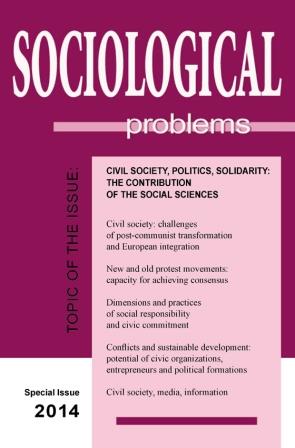State-Citizen Information Asymmetry and Sustainable (Non) Development. 25 Years since the Start of the Bulgarian Transition
State-Citizen Information Asymmetry and Sustainable (Non) Development. 25 Years since the Start of the Bulgarian Transition
Author(s): Vyara GanchevaSubject(s): Social Sciences
Published by: Институт по философия и социология при БАН
Keywords: information asymmetry; sustainable (non-)development; civil society; civic culture; participation.
Summary/Abstract: The article deals with information asymmetry between the state and citizens twenty-five years after the start of the transition in Bulgaria (1989). The author analyses the connection between the so-called „state capture“ and the condition of institutional transparency, the media and civic organizations. The article examines the causes, manifestations, and consequences of information asymmetry, including the phenomenon of „rational ignorance“ and „the culture of non-participation“. The discussion covers the formation of „information ghettoes“ and communication regarding EU funds, provided through the Management and Observation Information System for EU Structural Instruments (MOIS). The author addresses the questions: how do deficits of „mental software“ block the action of the so-called „institutional hardware“, i.e., laws and law enforcement institutions, and how can the disempowerment of citizens be overcome in a post-totalitarian state? The conclusion is that the solutions related to the sharing of power and the development of civic culture, including the culture of partnership, solidarity and participation, would pose a problem if values and attitudes are not changed, if the hidden „civic reserve“ is not mobilized, including that of pensioners and students, and if the potential of the new information and communication technologies and of the social media is not put to use.
Journal: Социологически проблеми
- Issue Year: 46/2014
- Issue No: Special
- Page Range: 186-198
- Page Count: 13
- Language: English
- Content File-PDF

